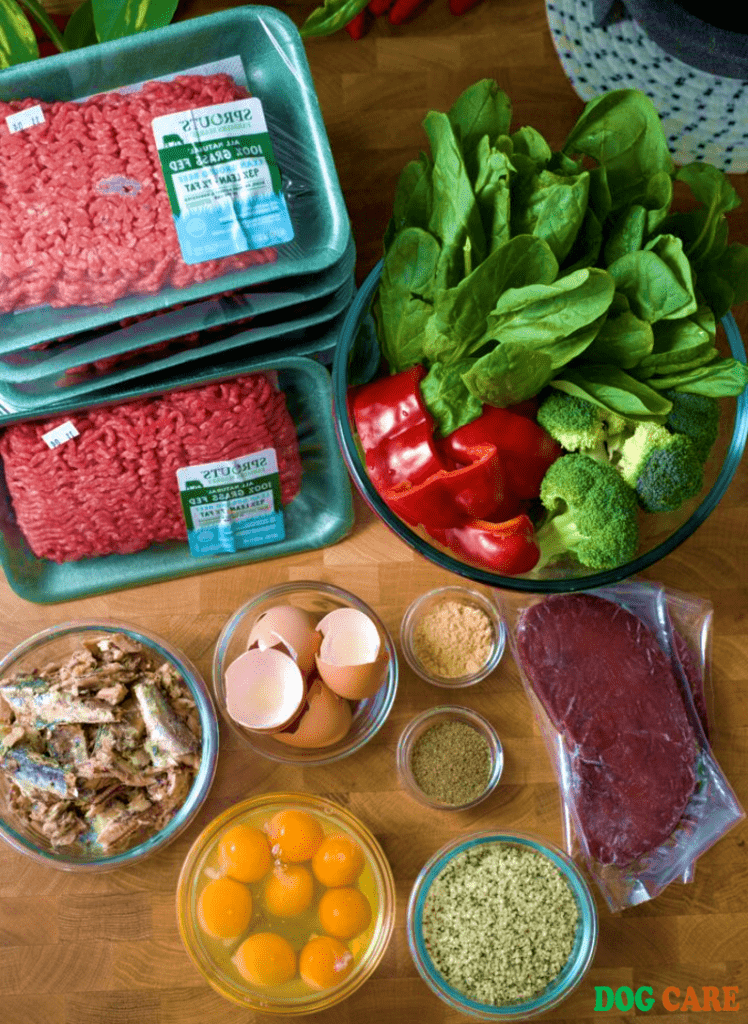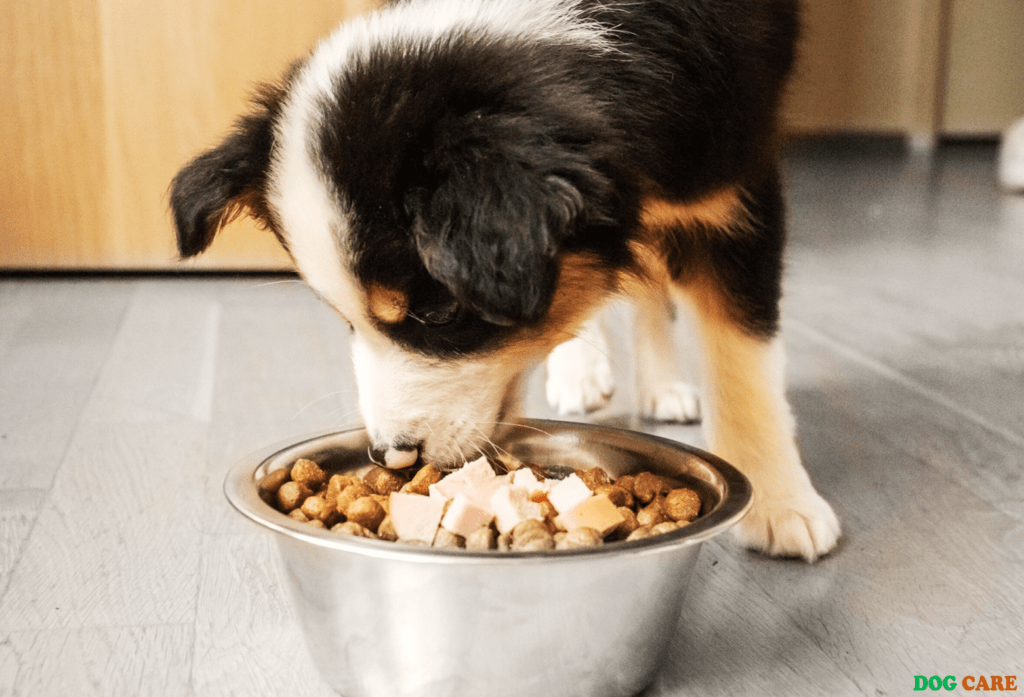Is Raw Chicken Good for Dogs? Raw chicken can be harmful to dogs and should not be included in their diet. It can contain bacteria such as Salmonella and Campylobacter, which can cause food poisoning and other health issues in dogs.
Feeding our furry friends a nutritious diet is crucial for their overall well-being. As dog owners, we often wonder if human food, such as raw chicken, is safe for them to consume. While raw diets have gained popularity among some dog owners, it’s important to understand the potential risks associated with feeding raw chicken to our canine companions.
This article aims to provide a clear and concise answer to the question, “Is raw chicken good for dogs? ” We will delve into the reasons why raw chicken may not be suitable for dogs, highlighting the potential health hazards it poses. By understanding these risks, we can make informed choices about what to include in our furry friends’ diets to ensure their optimal health and happiness.

The Controversy : Is Raw Chicken Good for Dogs?
Dog owners are increasingly turning to raw food diets for their furry friends. Proponents of the raw food diet argue that it is a more natural and nutritious way to feed dogs. The belief is that dogs are biologically designed to consume raw meat, just like their wolf ancestors. Advocates of this diet claim that it can lead to healthier skin and coat, increased energy levels, improved digestion, and even a longer lifespan for dogs.
While the raw food diet for dogs has its supporters, it is not without its detractors. Raw chicken, in particular, has been at the center of the controversy surrounding this diet. Critics argue that raw chicken poses several potential risks to dogs:
1. Bacterial contamination: Raw chicken can contain harmful bacteria, such as Salmonella and Campylobacter, which can cause foodborne illnesses in dogs. These bacteria can affect not only the dog but also the humans who come into contact with the raw chicken.
2. Nutritional imbalances: While raw chicken is a good source of protein, it may lack certain essential nutrients that are necessary for a balanced diet. Dogs require a variety of vitamins, minerals, and other nutrients to thrive, and relying solely on raw chicken may result in nutritional deficiencies.
3. Choking hazard: Feeding dogs raw chicken with bones increases the risk of choking or causing internal injuries. Bone fragments can splinter and cause damage to the dog’s mouth, throat, and gastrointestinal tract.
4. Pancreatitis: The high fat content in raw chicken can trigger pancreatitis in dogs, a condition characterized by inflammation of the pancreas. Pancreatitis can be extremely painful and can lead to serious health complications if left untreated.
Ultimately, before deciding to incorporate raw chicken into your dog’s diet, it is crucial to weigh the potential benefits against the risks. Consulting with a veterinarian can help you make an informed decision that takes into account your dog’s specific health needs and any potential health risks associated with a raw food diet.
Benefits Of Raw Chicken
Raw chicken can provide dogs with essential nutrients like protein and healthy fats. However, it’s crucial to handle it safely to prevent foodborne illnesses. Always consult with a veterinarian before adding raw chicken to your dog’s diet to ensure it’s right for them.
Nutritional Value
Raw chicken is rich in essential nutrients that can contribute to your dog’s overall health and well-being. It provides a balanced blend of protein, fats, vitamins, and minerals that are crucial for your canine companion.
A 100-gram serving of raw chicken contains approximately:
| Nutrient | Amount |
|---|---|
| Protein | 18.3 grams |
| Fat | 10 grams |
| Vitamin B6 | 0.5 milligrams |
| Vitamin B12 | 0.6 micrograms |
| Iron | 1.4 milligrams |
These nutrients are essential for your dog’s muscle growth and repair, energy metabolism, immune system function, and the production of red blood cells.
Dental Health Benefits
In addition to its nutritional value, raw chicken can also provide dental health benefits for your dog. The texture and chewing action required to consume raw chicken can help remove plaque and tartar from your dog’s teeth.
- Chewing raw chicken promotes saliva production, which helps to neutralize harmful bacteria in your dog’s mouth.
- The act of chewing also stimulates the gums and helps strengthen the jaw muscles.
- The natural enzymes present in raw chicken can assist in reducing the risk of periodontal disease and maintain fresher breath for your furry friend.
Regular chewing of raw chicken can significantly contribute to your dog’s oral hygiene and prevent dental issues such as tooth decay and gum disease.
Safe Practices
Safe practices are essential when it comes to feeding raw chicken to your dogs. Following proper handling and preparation methods, as well as choosing high-quality chicken, can help ensure the safety and health of your furry friend.
Choosing Quality Chicken
When selecting chicken for your dog, opt for fresh, organic, and hormone-free cuts. Make sure the chicken is intended for human consumption and not expired or near expiration. Avoid heavily processed or seasoned chicken products, which may contain harmful additives for dogs.
Handling And Preparation
When handling raw chicken for your dog, it’s crucial to minimize cross-contamination. Use separate cutting boards, utensils, and countertops dedicated solely to preparing your pet’s meals. Thoroughly wash your hands, surfaces, and tools with hot, soapy water after handling raw chicken to prevent the spread of bacteria.
Alternatives To Raw Chicken
If you’re considering alternatives to raw chicken for your furry friend, there are a few options that can still provide a healthy and nutritionally balanced diet. Here, we will discuss two popular alternatives: cooked chicken and commercial dog food.
Cooked Chicken And Its Benefits
Cooked chicken can be a great alternative to raw chicken for your dog’s diet. It not only provides a good source of protein but also offers several key benefits:
- Increased digestibility: Cooking chicken helps in breaking down tough fibers, making it easier for your dog to digest.
- Reduced risk of bacterial contamination: Cooking chicken thoroughly eliminates harmful bacteria, ensuring the safety of your furry friend.
- Enhanced flavor: The process of cooking enhances the natural flavors of chicken, making it even more enticing for your pup.
- Improved nutrient absorption: Some nutrients are better absorbed by the body when the chicken is cooked, allowing your dog to reap the maximum nutritional benefits.
When preparing cooked chicken for your dog, it’s important to remember a few guidelines:
- Cook the chicken thoroughly until there is no pink meat and the juices run clear.
- Avoid seasoning the chicken with ingredients like salt, onion, or garlic, as these can be harmful to dogs.
- Chop or shred the chicken into small, bite-sized pieces to make it easier for your pup to chew and digest.
Commercial Dog Food Options
If you prefer a convenient and hassle-free alternative, commercial dog food can provide a balanced and complete diet for your canine companion. Here are a few different options to consider:
| Type of Commercial Dog Food | Benefits |
|---|---|
| Dry Kibble | – Convenient to store and serve – Helps promote dental health – Provides a balanced nutritional profile |
| Canned Food | – High moisture content helps hydrate your dog – May be more palatable for picky eaters – Offers a variety of flavors |
| Frozen or Freeze-Dried | – Preserves nutrients through minimal processing – Can be rehydrated for added moisture – Can be a suitable option for dogs with specific dietary needs |
Before making a decision, it’s essential to consult with your vet to determine which type of commercial dog food is best suited for your dog’s specific needs.
Consulting A Veterinarian
Consulting a veterinarian is essential when it comes to determining if raw chicken is good for dogs. Professional guidance ensures your pet’s diet is safe and balanced, promoting their overall health and well-being.
When it comes to feeding your dog raw chicken, it is essential to consult a veterinarian first. Seeking professional advice is crucial to ensure the health and well-being of your furry friend. A veterinarian can provide personalized recommendations tailored specifically to your dog’s individual needs. They will be able to guide you on the proper handling, preparation, and feeding of raw chicken to your pet. Their expertise will help you make informed decisions to keep your dog safe and healthy.
Professional Advice
Professional advice from a veterinarian is invaluable when it comes to introducing raw chicken into your dog’s diet. They can provide important insights on the potential benefits and risks associated with feeding raw meat. A veterinarian can address any concerns you may have and offer evidence-based information to help you make an informed decision. They can also advise you on the appropriate portion sizes and frequency of feeding raw chicken to your dog. Trusting the expertise of a professional ensures that you’re giving your pet the best possible care.
Personalized Recommendations
Your dog’s specific needs and health condition should always be taken into consideration when making dietary choices. A veterinarian can offer personalized recommendations based on your dog’s age, breed, weight, and any underlying medical conditions. They can also consider your dog’s activity level and lifestyle to determine if incorporating raw chicken into their diet is appropriate.
Remember that each dog is unique, and what works for one may not work for another. By consulting a veterinarian, you can receive tailored advice that is tailored to your dog’s needs. In conclusion, consulting a veterinarian is crucial before introducing raw chicken into your dog’s diet. Their professional advice and personalized recommendations will ensure that you’re making the best choices for your furry friend’s health and well-being. Trusting their expertise will give you peace of mind and help you provide the nutritional requirements your dog needs.
Frequently Asked Questions Of Is Raw Chicken Good For Dogs
Is It Ok To Feed Raw Chicken To Dogs?
Feeding raw chicken to dogs is generally safe, but caution is needed. Raw chicken may contain harmful bacteria like salmonella, which can make dogs sick. Before feeding raw chicken, consult with a veterinarian to ensure your dog’s safety and to establish a balanced diet.
Is Cooked Or Raw Chicken Better For Dogs?
Cooked chicken is better for dogs as it reduces the risk of bacterial contamination. Raw chicken can contain harmful bacteria. Cooking eliminates this risk, making it safer for dogs to consume. However, chicken should be fed plain, without seasoning or bones.
What Raw Meat Is Best For Dogs?
The best raw meat for dogs is lean cuts of chicken, beef, or turkey. These meats provide essential nutrients and protein for your dog’s health. Avoid raw pork, as it may contain harmful parasites. So, stick to chicken, beef, or turkey for a healthy and balanced diet.
Can I Feed My Dog Raw Chicken From The Grocery Store?
Yes, you can feed your dog raw chicken from the grocery store, but make sure it’s fresh and handled properly to avoid potential bacterial contamination.
Conclusion
Raw chicken can be a beneficial addition to a dog’s diet, but it comes with risks. It’s crucial to consider proper handling and consultation with a veterinarian. While some dogs may thrive on raw chicken, others may be at risk of bacterial infection.
Ultimately, it’s important to carefully weigh the potential benefits and drawbacks before offering raw chicken to your furry friend.


